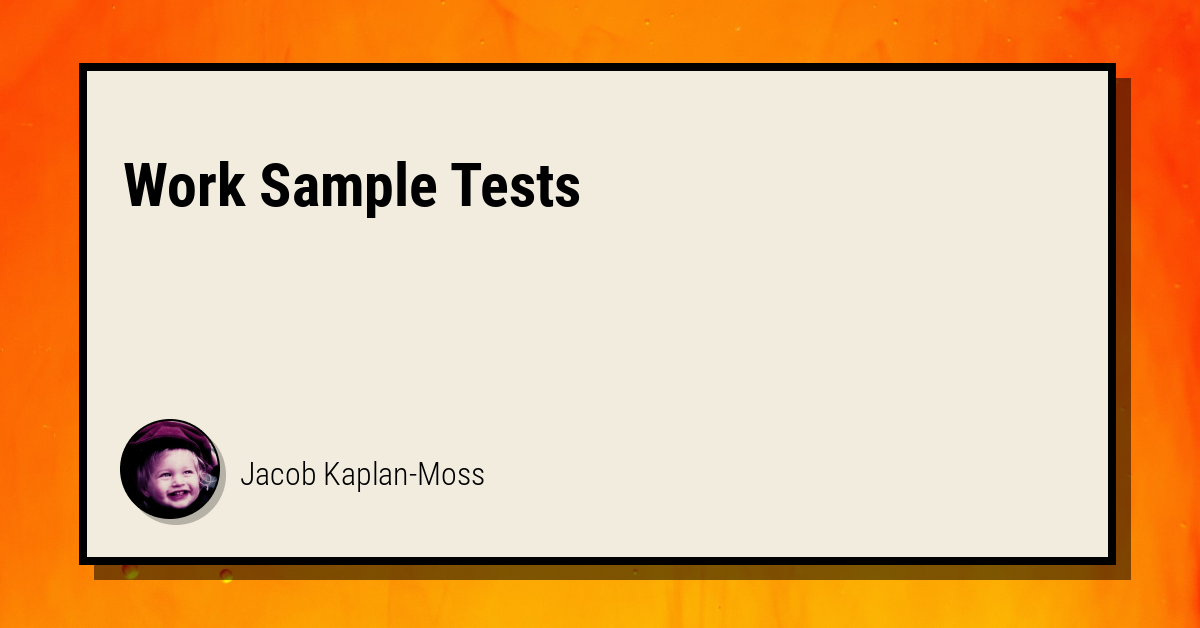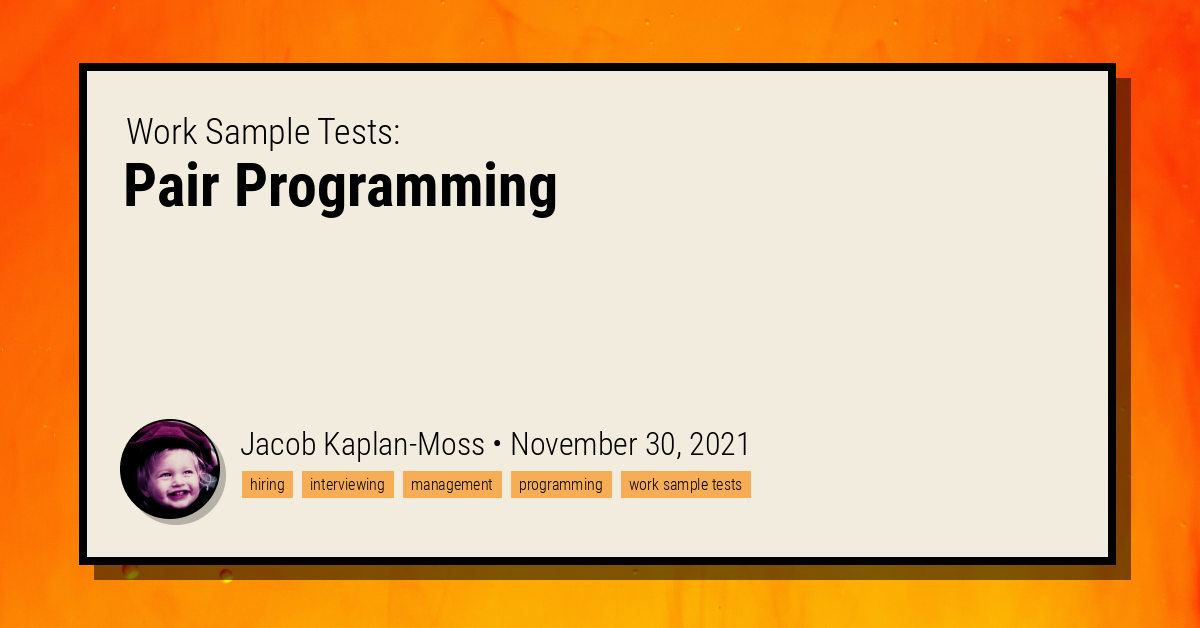Work sample tests are an exercise, a simulation, a small slice of real day-to-day work that we ask candidates to perform. They’re practical, hands-on, and very close or even identical to actual tasks the person would perform if hired. They’re also small, constrained, and simplified enough to be fair to include in a job selection process. Work sample tests are a critical factor in effective hiring. Interviews aren’t enough; hiring without work sample tests risks selection people who exce...| jacobian.org
For most software engineering roles, the best work sample test will be some combination of the exercises I covered earlier in this series. But not every role; there are some circumstances where other types of tests fit better or are better at revealing some critical piece of information relevant to hiring. This post covers one of them: a “reverse” code review, where instead of you reviewing the candidate’s code, you have them review yours.| jacobian.org
I tend to prefer asynchronous work sample tests. The flexible scheduling of asynchronous exercises (i.e. “work on this whenever you like”) works better for the majority of candidates. But for some candidates, and some roles, synchronous exercises work better. By “synchronous” I mean: work sample tests that are explicitly scheduled, and that has both the interviewer and the candidate working directly together at the same time. In these cases, I often turn to pair programming.| jacobian.org



